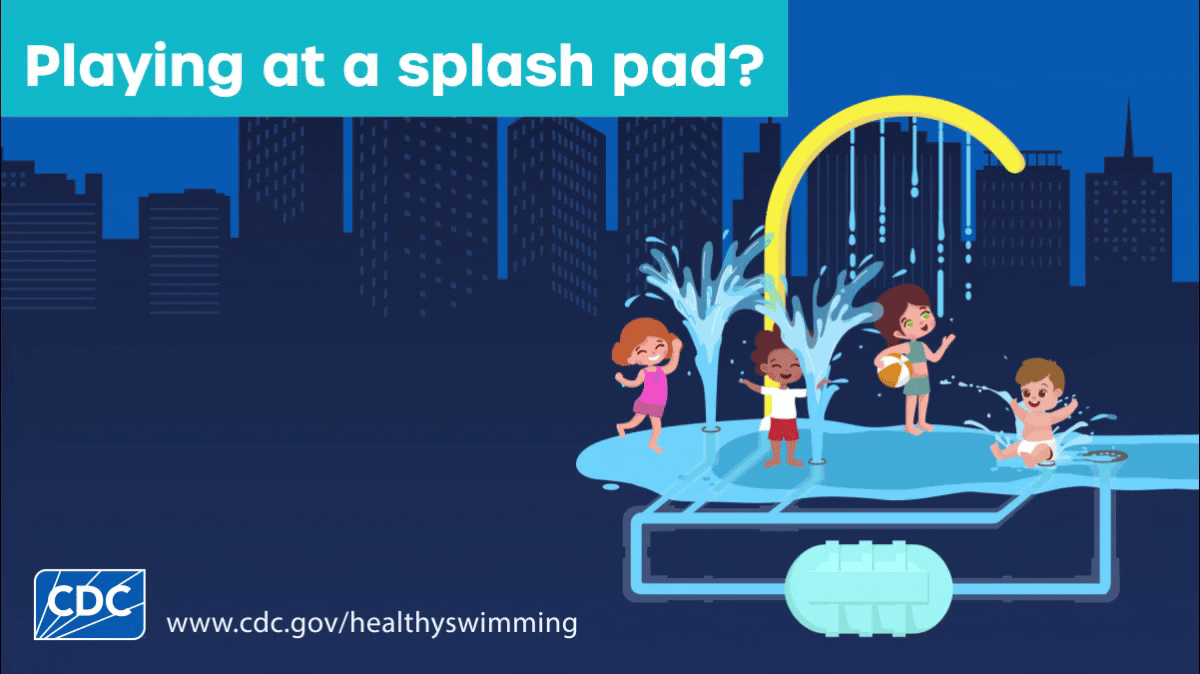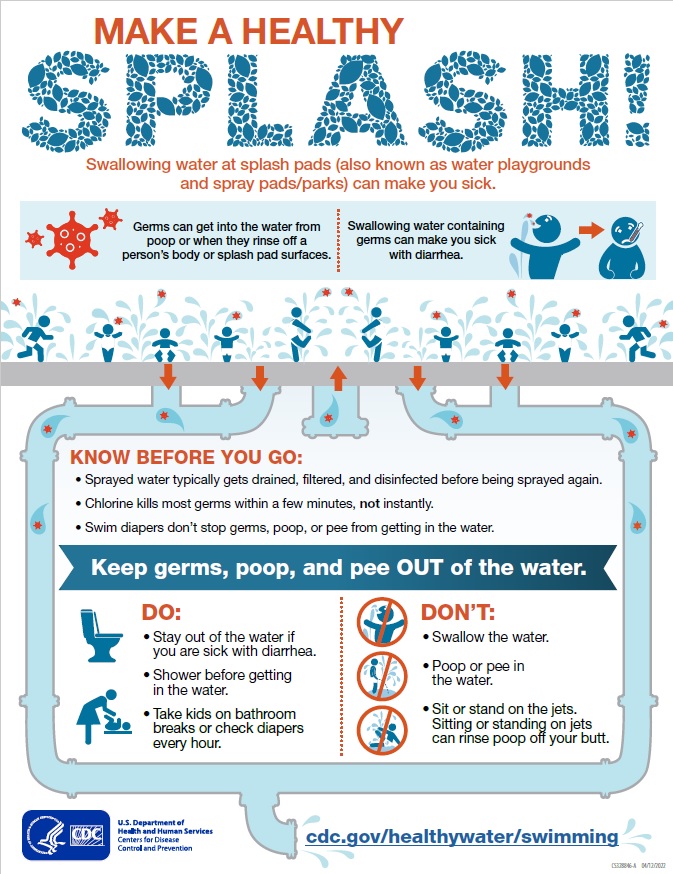
- Home
- Diseases & Health Topics A-Z List
- Waterborne Illness
Waterborne Illness
"Waterborne illness" describes illnesses that are spread when people swallow or have contact with water that is not clean (unsanitary). Swallowing or breathing in mists or sprays of unsanitary water from drinking water systems, swimming pools, water parks, hot tubs, water play areas, fountains, lakes, rivers, or oceans can make you sick. A person can also get a waterborne illness by eating or drinking food or beverages that have been spoiled from contact with animals or their environment, or through other ill persons.
Swimmers can be the cause of a waterborne illness if they defecate in the water or if stool washes off their bodies. Lakes, rivers, streams and the ocean can also become polluted with germs from waste water spills, animal waste, and water runoff after rainfall.
Waterborne illnesses can cause many different symptoms. Diarrhea and vomiting are the most common symptoms, while skin, eye, ear, respiratory, and nervous system problems may also occur. People with weakened immune systems are at a higher risk of getting more severe forms of waterborne illness.
Waterborne illnesses can be caused by many different germs and toxins. Some of these are reportable (doctors and others need to notify public health authorities about the illness so that others can be protected).
The germs and toxins that cause these illnesses can be broken down by those that mainly cause diarrhea:
And those that cause other symptoms:
- Harmful Algal Blooms (HABs)
- Legionella (Legionnaires’ disease or Pontiac fever)
- Naegleria fowleri and Primary Amebic Meningoencephalitis
A waterborne illness outbreak occurs when two or more persons experience a similar illness and have exposure to the same water source and there is evidence that the water is the likely source of the illness.
Waterborne illnesses occur more frequently in the summer months. Most people recover from waterborne illnesses on their own and only require supportive care, although in some cases people may require antibiotics or other treatment.
- Swimmers should not swallow the water.
- Practice good personal hygiene such as showering before swimming and washing hands after using the toilet or changing diapers.
- Do not enter swimming areas when ill with vomiting or diarrhea.
- Swimmers who are sick with diarrhea should wait at least 2 weeks after they have fully recovered before swimming in a public pool.
- Do not let children ill with vomiting or diarrhea enter swimming areas even if they are wearing swim diapers.
- Children in diapers should have frequent diaper changes, others should be taken on frequent bathroom breaks while swimming.
- Observe posted swimming advisories, stay out of water that is foamy, smelly or discolored.
- Limit water entering the nose when swimming in warm fresh water.
- Use only safe sources for drinking water, including during recreational activities. If water quality is uncertain, boil or chemically treat water before using it for drinking, rinsing uncooked foods, or brushing teeth.

Additional Information
- Drinking Water
- Waterborne Disease Outbreak Investigation Toolkit
- Fecal Incident Response Recommendations for Aquatic Staff [English] [Spanish]
- Water Contamination and Diseases
- NJDOH Public Health Sanitation & Safety Program
- Cyanobacterial Harmful Algal Blooms (CyanoHABS)
- Stay Healthy in Hot Tubs
- Stay Healthy at Splash Pads
- Stay Healthy in Kiddie Pools
- Keeping Your Pool Safe and Healthy

